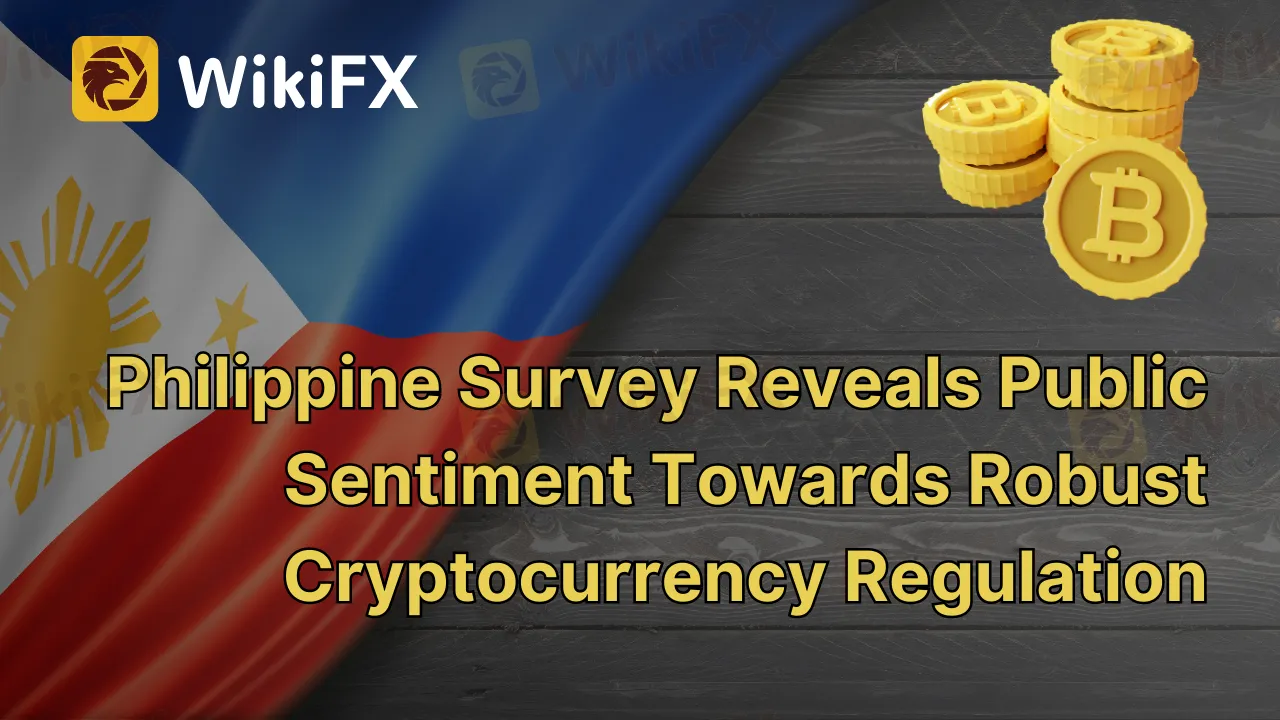简体中文
繁體中文
English
Pусский
日本語
ภาษาไทย
Tiếng Việt
Bahasa Indonesia
Español
हिन्दी
Filippiiniläinen
Français
Deutsch
Português
Türkçe
한국어
العربية
Philippine Survey Reveals Public Sentiment Towards Robust Cryptocurrency Regulation
Abstract:Discover insights from a ConsenSys survey revealing that over 51% of Filipinos support robust cryptocurrency regulation to protect markets and investors.

A recent survey by Ethereum firm ConsenSys has highlighted that over half (51%) of Filipinos strongly believe in the necessity of robust regulation for cryptocurrencies. This sentiment comes from the perceived need to safeguard traditional financial markets and ensure investor protection.
Public Opinion on Crypto and Regulation
The survey, conducted by the international data and analytics group, YouGov, reached out to Filipinos between the ages of 18 and 65 years to gather their opinions on cryptocurrency regulation. Of the majority advocating for regulation, 34% emphasized the importance of regulators establishing rules to promote responsible engagement in cryptocurrencies while ensuring investor protection.
A smaller group of respondents, 5%, expressed a contrary view, asserting that regulators should refrain from controlling cryptocurrency, thus allowing the industry to self-regulate. An additional 11% were uncertain, expressing a “don't know” stance toward the issue.
Additional Opinions on Cryptocurrency
According to research by WikiFX, 47% of the respondents viewed cryptocurrencies as the future of money. Further, 38% considered cryptocurrencies a promising alternative to traditional financial systems. The survey also reflected a growing recognition of the concept of digital ownership, with 35% of respondents acknowledging its importance.
Interestingly, more than half of the respondents (52%) perceived cryptocurrencies as environmentally friendly technology. Other opinions varied: 9% considered crypto as not environmentally friendly and believed it never would be; 17% felt that while crypto currently isn't environmentally friendly, it is improving; the remaining 22% were uncertain.
Cryptocurrency Regulation in the Philippines
In the absence of specific cryptocurrency legislation in the Philippines, existing rules and regulations are used to monitor and oversee the crypto landscape. These include the Virtual Asset Service Providers (VASP) license issued by the Bangko Sentral ng Pilipinas, which allows firms to legally handle exchanges of virtual assets and fiat cash. Furthermore, the Securities and Exchange Commission (SEC) gives jurisdiction to monitor and regulate exchanges, clearing agencies, and self-regulatory organizations under the Securities and Regulation Code (SRC).
Last year, both the central bank and the SEC urged legislators to write laws addressing digital assets such as cryptocurrencies and non-fungible tokens (NFTs). In March, SEC Commissioner Kelvin Lester Lee revealed that a regulatory framework for crypto was being drafted, although this was postponed due to the FTX collapse. To date, there has been no update on the progress of these regulations.
In May, Financial Stability Board (FSB) Chairman Klaas Knot revealed intentions to create a worldwide regulatory framework for cryptocurrency assets. The aim is to provide guidance to relevant entities by leveraging standard-setting bodies in banking, insurance, and securities regulations.
To stay updated on the latest news, download and install the WikiFX App on your smartphone. Download the App.
Download link: https://www.wikifx.com/en/download.html

Disclaimer:
The views in this article only represent the author's personal views, and do not constitute investment advice on this platform. This platform does not guarantee the accuracy, completeness and timeliness of the information in the article, and will not be liable for any loss caused by the use of or reliance on the information in the article.
Related broker
Read more

Why Copy Trading is Perfect for New Investors
Learn why copy trading is ideal for new investors. Follow expert traders, minimize risks, and start earning confidently—no prior expertise is required.

First Unfair Trading Case Reported Under South Korea’s Virtual Asset User Protection Act
The Financial Services Commission (FSC) of South Korea has disclosed the first case of unfair trading following the enactment of the Virtual Asset User Protection Act. This law, which took effect in July 2024, aims to regulate the cryptocurrency market and protect investors from fraud and market manipulation.

Upbit Faces Severe Penalties for AML and KYC Violations
Upbit, South Korea’s leading cryptocurrency exchange, faces severe penalties for over 700,000 AML and KYC violations.

Binance’s Bold Move: 12 Trading Pairs Are Getting Delisted
Binance, one of the world’s largest cryptocurrency exchanges, will remove 12 spot trading pairs from its platform on January 17, 2025, at 03:00 (UTC).
WikiFX Broker
Latest News
How Long Can the Dollar Remain Strong?
Forex Price Trend Prediction! | Come be a New Year Price Winner!
HFM NY Special Offer!
How a Promised RM1.4 Million Return Turned into a Costly Scam
Cinkciarz.pl Under Fire: Frozen Accounts, Missing Funds
First Unfair Trading Case Reported Under South Korea’s Virtual Asset User Protection Act
“Predict and Win” Big Rewards! Join the Contest Now
South Korean President Yoon Suk Yeol's Arrest Shakes Markets
Titanium Capital LLC Ponzi Scheme: Henry Abdo Admits Fraud, Impacting Over 200 Investors
South Korea's Crypto Regulation Updates for 2025
Currency Calculator






